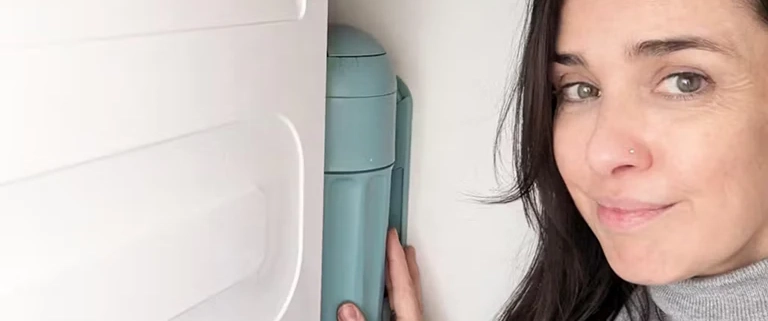Filtering Out Microfibre Pollution
Did you know your daily diet might include a helping of plastic? Microplastics have been found in honey, sea salt, bottled water, and even human blood and lungs. While they may be “micro” in size, their impact on health and the environment is anything but small. We can’t see them, but they’re everywhere. Every time we wash synthetic clothes, thousands of microscopic fibres are released into the water system. Many of these microplastics end up in rivers and seas and the soil where they can harm wildlife and enter the food chain.
Our washing machines are a major source of this pollution. A University of Plymouth study (Napper & Thompson, 2016) fund that an average 6kg load of laundry can release more than 700,000 plastic microfibres into wastewater. Most of these fibres come from synthetic fabrics such as polyester, which now make up over 60 per cent of the world’s textiles.
Sussex Green Living is calling for volunteers to help tackle the problem close to home. The charity is planning to launch a new community campaign in association with a company called Planet Care to promote the use of Planet Care washing machine filters, which capture up to 90 per cent of these fibres before they reach the water system. Volunteers will help test and demonstrate the filters and share information locally about how small changes at home can make a measurable difference to water quality and wildlife.
Scientists and water companies are researching how best to remove microplastics from wastewater, but what we do at home can have an immediate effect. This project will show how simple technology, combined with community effort, can make a real difference to the health of our waterways and water system. It is part of a growing wave of community-led action across Sussex, where people are finding new ways to protect the nature that defines our county.
Sussex Green Living plans to build a small team of curious, capable and committed volunteers who want to make a visible difference. No technical expertise is needed, just an interest in cleaner water and a willingness to help others understand the issue. Volunteers will receive training and support and can expect to give around two hours a week, plus attendance at the monthly Sussex Green Hub in Horsham. Some roles may focus more on testing and demonstrations, others on community outreach or sharing stories that inspire wider action.
This local effort shows how environmental change often starts at home. By preventing microplastics from entering the water system, we protect our rivers, coasts and the marine life that depends on them. Cleaner water benefits everyone. To register your interest, complete the short volunteer form at https://forms.office.com/e/NRigrBCB0Y

 Planet Care
Planet Care
 Share Shed
Share Shed